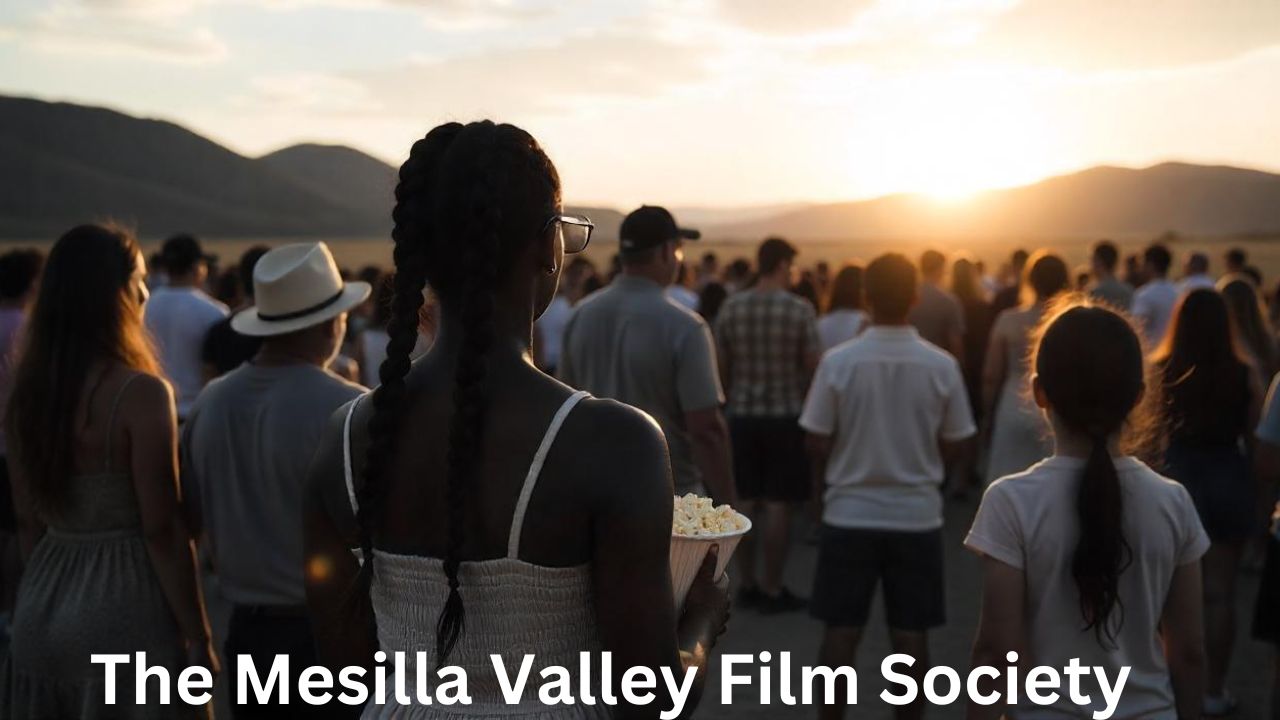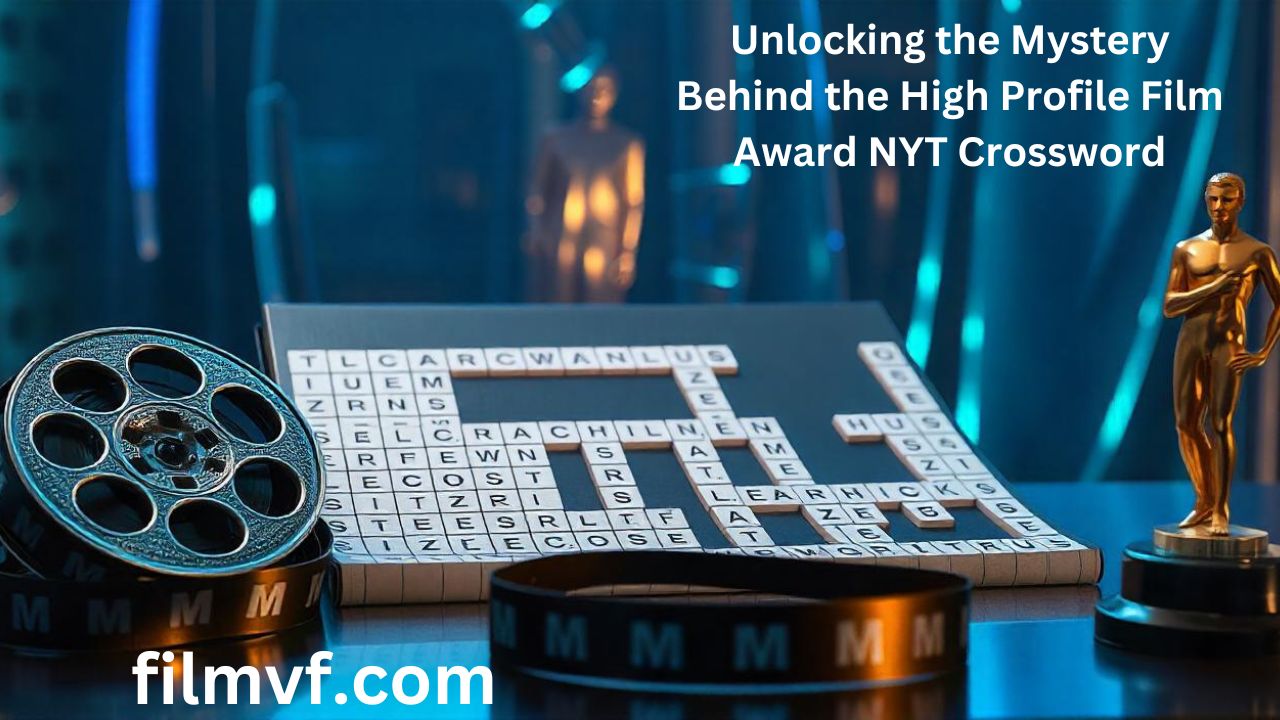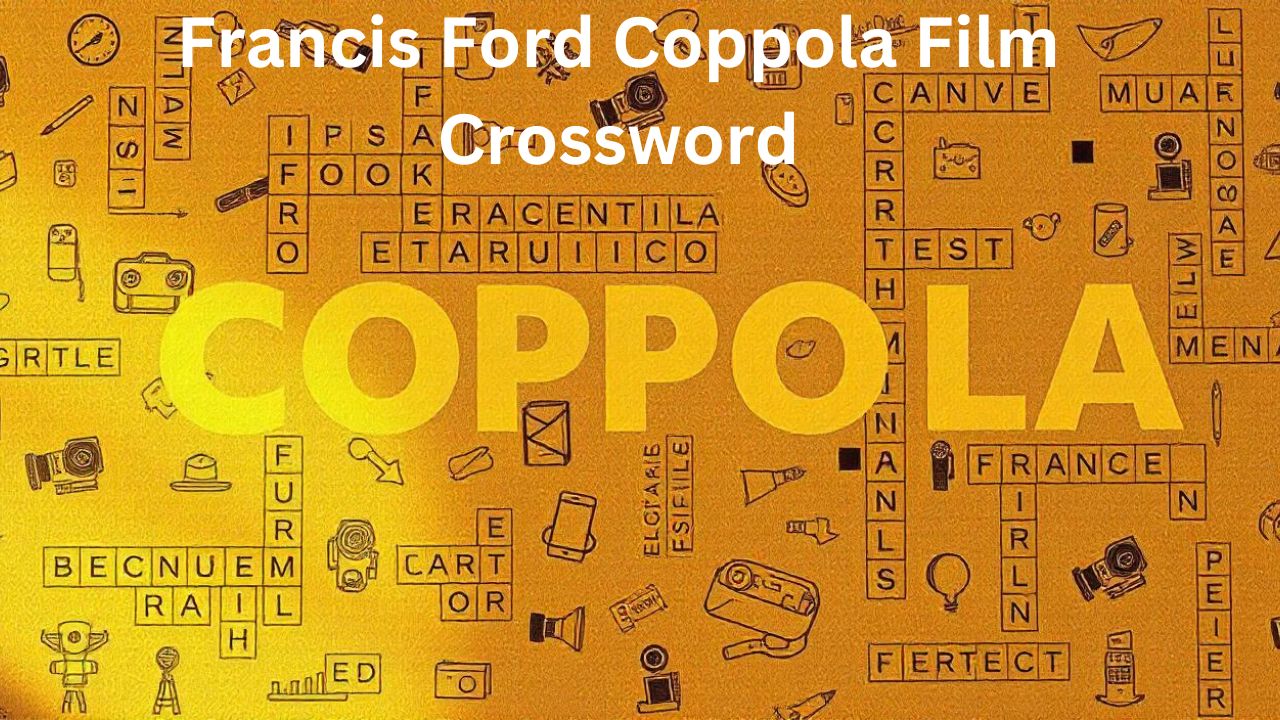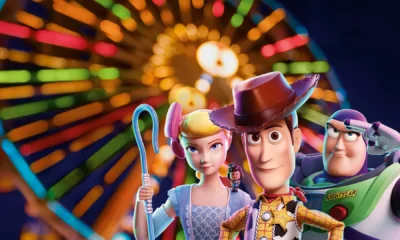Entertainment
Films of Joel or Ethan Coen: A Journey Through Cinema Masterpieces

Joel and Ethan Coen, often referred to as the Coen Brothers, have been shaping the world of cinema for decades. Their films are renowned for their dark humor, quirky characters, and distinctive storytelling techniques. When it comes to crosswords, their names often appear with clues hinting at their memorable films. From Fargo to No Country for Old Men, the Coen Brothers have left an indelible mark on modern filmmaking.
The Coens have mastered a variety of genres, from crime thrillers to absurd comedies. This article will explore the most iconic films by Joel and Ethan Coen. We’ll dive deep into their creative storytelling, unforgettable characters, and their impact on the world of cinema.
The Early Beginnings of Joel and Ethan Coen
The Coen Brothers started their filmmaking journey in the 1980s, a period ripe for creative innovation. They debuted with Blood Simple in 1984, which introduced their signature blend of crime, suspense, and dark humor. The film was well-received by critics and laid the foundation for their distinctive cinematic voice.
Their second film, Raising Arizona (1987), was a stark departure from the suspenseful tone of Blood Simple. Instead, it embraced absurdity and slapstick humor. The shift showed their versatility, proving they could handle different genres with ease.
With Raising Arizona, the Coens developed a keen sense of visual style. The film’s colorful cinematography and eccentric characters set it apart from other comedies of the time. Despite its playful tone, the movie touched on themes of family, crime, and morality—topics that the Coens would revisit in future films.
The Rise of the Coen Brothers in the 1990s
The 1990s were a defining decade for Joel and Ethan Coen. In 1990, they released Miller’s Crossing, a neo-noir gangster film that delved into complex themes of loyalty and betrayal. It was a slower burn compared to their earlier works, but it demonstrated their skill in crafting intricate narratives.
In 1991, the Coens won their first Palme d’Or at the Cannes Film Festival for Barton Fink. The film, a surreal exploration of writer’s block and the Hollywood machine, solidified their place as filmmakers who weren’t afraid to take risks. Barton Fink confused some viewers but delighted others with its surreal storytelling and metaphorical depth.
However, it was Fargo in 1996 that truly catapulted the Coens to mainstream success. Fargo was a dark comedy set in the snowy landscapes of Minnesota, focusing on a botched kidnapping that spirals out of control. The film showcased their ability to blend humor and horror seamlessly.
With unforgettable performances by Frances McDormand and William H. Macy, Fargo became a critical and commercial success. It won multiple awards, including an Academy Award for Best Original Screenplay. The film’s distinct setting, quirky characters, and sharp dialogue make it a recurring clue in crossword puzzles related to the Coen Brothers.
A Mix of Genres: The Coen Brothers’ Diverse Filmography
Joel and Ethan Coen have always resisted being pigeonholed into one genre. Their films span everything from crime dramas to westerns, always delivered with their unique spin.
One of their most notable genre shifts came with The Big Lebowski in 1998. A cult classic, The Big Lebowski follows Jeffrey “The Dude” Lebowski, a laid-back, pot-smoking bowler who gets swept into a bizarre crime caper. The film, while initially underappreciated, has since become one of the Coens’ most beloved works. Its quirky characters, offbeat humor, and memorable one-liners have given it lasting appeal.
The Coen Brothers followed up with O Brother, Where Art Thou? in 2000, a comedic take on Homer’s The Odyssey set during the Great Depression. The film’s unique blend of adventure, musical elements, and Southern folklore charmed audiences. It also showcased the Coens’ knack for curating impeccable soundtracks, with the bluegrass and folk music of the film becoming iconic in its own right.
The Pinnacle of Success: No Country for Old Men
In 2007, the Coen Brothers reached a new height of acclaim with No Country for Old Men. Adapted from Cormac McCarthy’s novel, the film is a tense, brutal thriller set in the desolate landscapes of West Texas. It tells the story of a man who stumbles upon a drug deal gone wrong and a suitcase filled with money.
No Country for Old Men was a departure from the Coens’ typically comedic tone. Its stark, unforgiving narrative focuses on themes of fate, morality, and violence. The film’s antagonist, Anton Chigurh, played by Javier Bardem, remains one of the most terrifying villains in modern cinema.
The film was a critical and commercial success, earning four Academy Awards, including Best Picture and Best Director. With its gripping storyline, intense performances, and striking visuals, No Country for Old Men further cemented the Coen Brothers’ place in cinematic history.
Comedy, Westerns, and Everything In Between
After the success of No Country for Old Men, the Coen Brothers returned to their comedic roots with Burn After Reading in 2008. The film, a dark comedy about idiotic spies and misunderstandings, reunited the Coens with familiar actors like George Clooney and Frances McDormand. While not as critically acclaimed as their previous works, Burn After Reading still displayed the brothers’ flair for absurdist humor.
The Coen Brothers have also dabbled in the western genre multiple times throughout their careers. In 2010, they remade True Grit, a classic American Western originally starring John Wayne. The Coens’ version, featuring Jeff Bridges, Matt Damon, and newcomer Hailee Steinfeld, received rave reviews. The film was a more faithful adaptation of the novel by Charles Portis, and it showed the brothers’ reverence for the Western genre.
In 2018, the Coens returned to the western with The Ballad of Buster Scruggs, an anthology film that combined six different stories. Each segment offered a distinct take on the American West, blending humor, violence, and moral lessons. The anthology format allowed the Coens to experiment with different tones and storytelling techniques, showcasing their versatility once again.
Recurring Themes in Coen Brothers Films
While the Coen Brothers are known for their genre-hopping, certain themes run through many of their films. One recurring theme is the idea of fate or destiny. In No Country for Old Men, Anton Chigurh uses a coin toss to determine the fates of his victims, representing an indifferent, chaotic world where human decisions have little impact.
Another common theme in their films is the absurdity of life. In The Big Lebowski, The Dude stumbles through his existence, unconcerned with the consequences of his actions. Similarly, in Burn After Reading, the characters’ idiocy leads to disastrous outcomes, illustrating the randomness and futility of their efforts.
Many Coen Brothers films also explore the dark side of the American dream. In Fargo, Jerry Lundegaard’s desperation to solve his financial problems leads him down a path of crime, only to end in his downfall. The Coens often present characters who try to control their fate, only to be met with the harsh reality that life rarely goes as planned.
The Coen Brothers’ Impact on Modern Filmmaking
Joel and Ethan Coen have influenced countless filmmakers with their unique style and voice. Their ability to blend different genres and tones, often within a single film, has inspired a new generation of directors.
Their sharp dialogue, memorable characters, and intricate plots have become trademarks of their work. The Coens’ films are often analyzed in film studies classes for their use of symbolism, visual storytelling, and narrative structure. Their success has paved the way for more experimental, independent filmmakers who push the boundaries of traditional storytelling.
The Coen Brothers also demonstrated that directors could work outside the studio system and still achieve critical and commercial success. Their films have largely been made with creative freedom, allowing them to stay true to their unique vision.
Conclusion: A Legacy in Cinema
Joel and Ethan Coen have created some of the most iconic films in modern cinema. Their ability to blend humor, drama, and suspense, often within the same scene, sets them apart from other filmmakers. With a filmography that spans over three decades, they’ve tackled everything from crime capers to existential dramas.
Their films often appear in crossword puzzles, hinting at the significant cultural impact they’ve had. From Fargo to No Country for Old Men, the Coen Brothers have left an undeniable mark on cinema.
Whether you’re a fan of their dark humor or their ability to craft tense, thrilling narratives, there’s no denying the Coens’ influence on modern filmmaking. Their legacy will continue to inspire future filmmakers and entertain audiences for generations to come.
FAQs
What are some of the Coen Brothers’ most famous films?
Some of their most famous films include Fargo, The Big Lebowski, No Country for Old Men, and O Brother, Where Art Thou?
How many Academy Awards have Joel and Ethan Coen won?
The Coen Brothers have won four Academy Awards, including Best Picture and Best Director for No Country for Old Men.
Which Coen Brothers films are known for their dark humor?
Films like Fargo, Burn After Reading, and The Big Lebowski showcase the Coens’ signature dark humor.
Are all Coen Brothers films comedies?
No, while many of their films include humor, they have also made serious dramas like No Country for Old Men and Miller’s Crossing.
What themes are common in Coen Brothers films?
Common themes include fate, absurdity, and the dark side of the American dream.
Have the Coen Brothers ever worked separately?
Yes, while they typically collaborate, Joel directed The Tragedy of Macbeth (2021) without Ethan.
Entertainment
The Mesilla Valley Film Society: A Hidden Gem for Film Enthusiasts

Tucked away in the enchanting town of Mesilla, New Mexico, lies the vibrant Mesilla Valley Film Society, a community treasure that celebrates independent and foreign films. This organization brings together movie enthusiasts and filmmakers, offering a unique experience in the historic setting of the Fountain Theatre. For over four decades, the Mesilla Valley Film Society has curated an exceptional lineup of films that challenge, inspire, and entertain its loyal audience. Whether you’re a dedicated cinephile or someone searching for an enjoyable evening, the Mesilla Valley Film Society offers an experience that transcends typical movie outings.
A Commitment to Independent Cinema
The Mesilla Valley Film Society serves as a sanctuary for those who appreciate films that stray from the mainstream. Here, you won’t encounter Hollywood blockbusters or formulaic action flicks. Instead, the society showcases thought-provoking, artistic films from around the world. By focusing on independent films, documentaries, and foreign cinema, it nurtures a deep appreciation for storytelling. This venue remains one of the last bastions where true cinema lovers can gather and explore films reflecting diverse perspectives.
Additionally, the society’s dedication to cultivating cultural awareness through film is truly commendable. It connects viewers with stories that cross borders, showcasing narratives reflecting various lives, struggles, and triumphs. The sense of community that the Mesilla Valley Film Society fosters helps keep the passion for film alive in Southern New Mexico.
Historic Charm of the Fountain Theatre
The Fountain Theatre, where the Mesilla Valley Film Society operates, enhances the entire film-watching experience. Built in 1905, it stands as one of the oldest continuously running theaters in the Southwest. The building’s rich history adds a timeless ambiance to every screening. With its cozy seating, classic architecture, and welcoming atmosphere, the theater offers a setting that feels intimate and immersive.
Stepping into the Fountain Theatre feels like taking a journey back in time. The vintage charm, combined with the society’s thoughtfully selected films, creates an atmosphere that fosters appreciation for both filmmaking and the venue’s storied past. The society has breathed new life into this historic space, transforming it into a cultural hub for New Mexico’s diverse community.
How Community Support Fuels the Society’s Success
Community involvement has been a driving force behind the success of the MVFS. This organization thrives due to its dedicated members, volunteers, and patrons who recognize the importance of preserving independent cinema. By attending screenings or becoming members, locals contribute to keeping independent films alive in the region.
Special events, Q&A sessions with filmmakers, and community discussions encourage meaningful dialogue among attendees. Volunteers play crucial roles, from managing the theater to handling marketing efforts. Their support allows the society to maintain affordable ticket prices and a high-quality film program. Furthermore, fundraising events not only provide financial backing but also serve as social gatherings that strengthen community bonds.
Diverse Film Programming for All Tastes
The Mesilla Valley Film Society takes pride in its diverse film programming. Its selections cater to varied tastes and preferences, offering documentaries, international films, art-house movies, and independent features. These are titles you won’t typically find in mainstream theaters. Each month, the society introduces new films that challenge viewers’ perspectives, encouraging exploration of different cultures, ideologies, and stories.
In addition to regular screenings, the society hosts themed film series and collaborates with local organizations for special events. These activities create an inclusive environment where people of all ages and backgrounds gather to celebrate their love for cinema. Their commitment to promoting underrepresented voices in film has cemented their status as a beloved local institution.
Educational Outreach and Nurturing Film Literacy
The MVFS strongly believes in film as a tool for education and cultural exchange. As part of its mission, the society engages in outreach programs that increase film literacy within the community. By partnering with schools, universities, and community organizations, it introduces the magic of cinema to younger generations.
Workshops, discussions, and guest lectures help cultivate critical thinking and creativity. Students begin to see films as more than entertainment—they come to understand the deeper meanings and artistic expressions behind each story. These educational initiatives by the Mesilla Valley Film Society nurture the next generation of filmmakers and passionate moviegoers.
Embracing Sustainability and Looking Forward
The digital age has presented challenges for independent theaters, especially with the popularity of streaming platforms. However, the Mesilla Valley Film Society remains resilient by focusing on what sets it apart: community engagement and the timeless experience of watching a film in a historic theater. The society adapts to changing times while preserving its unique charm.
Its commitment to sustainability extends beyond film selection. The society emphasizes eco-friendly practices, such as minimizing waste and using energy-efficient equipment. Supporting the Mesilla Valley Film Society means not only endorsing independent cinema but also contributing to a greener, more sustainable community.
Getting Involved with the Mesilla Valley Film Society
Joining the Mesilla Valley Film Society is simple. Start by attending a film screening or consider becoming a member. Membership comes with perks, such as discounted tickets, early event access, and invitations to exclusive gatherings. For those eager to contribute more actively, volunteering is a fantastic way to get involved. Volunteers gain hands-on experience in event planning, marketing, and theater operations while connecting with fellow cinema enthusiasts.
Whether you’re a devoted film buff, a curious student, or simply someone seeking a fresh experience, the MVFS welcomes everyone. Supporting this organization helps ensure that independent cinema continues to thrive in Mesilla.
Preserving the Spirit of Independent Cinema
In a world where digital streaming dominates entertainment, the MVFS stands as a testament to the enduring power of shared film experiences. The society’s unwavering commitment to independent films, cultural enrichment, and community engagement distinguishes it as a unique institution in New Mexico. By attending a screening at the Fountain Theatre, you’re not just watching a movie; you’re participating in a cherished local tradition.
For anyone visiting Mesilla or residing in Southern New Mexico, the Mesilla Valley Film Society offers an evening of culture, conversation, and connection. Supporting this society preserves a space where independent voices are heard, and stories from across the globe find an audience.
FAQs
What kind of films does the Mesilla Valley Film Society show?
They focus on independent, foreign, and documentary films that are rarely available in mainstream theaters.
Can I volunteer at the Mesilla Valley Film Society?
Absolutely! The society welcomes volunteers who want to support its mission and theater operations.
How can I join the Mesilla Valley Film Society?
Sign up for a membership online or at the theater for perks like discounts and exclusive events.
Do they offer educational programs?
Yes, they engage in outreach, hosting workshops and discussions to increase film literacy for all ages.
What makes the Fountain Theatre special?
Its historic charm and intimate setting enhance every film experience, making it truly memorable.
Why should I support the Mesilla Valley Film Society?
By supporting them, you help keep independent cinema, cultural diversity, and community engagement thriving.
Entertainment
Unlocking the Mystery Behind the High Profile Film Award NYT Crossword

Unlocking the Mystery Behind the High Profile Film Award NYT Crossword. The New York Times crossword puzzle remains a beloved challenge among enthusiasts. Every so often, a theme like “high profile film award NYT crossword” emerges to captivate solvers with its clever wordplay and cultural references. For those unfamiliar with the intricacies, a themed puzzle can feel like a labyrinth. Yet, with some strategic approaches, you can solve these puzzles more efficiently.
Crossword enthusiasts know how exciting and sometimes daunting the NYT crossword can be. Themes like “high profile film award” often appear to test solvers’ pop culture knowledge, especially related to cinema. The keyphrase “high profile film award NYT crossword” often features in clues that point towards the coveted Oscars, Cannes, or other renowned accolades. Understanding these themes not only increases your crossword-solving skills but also enriches your trivia knowledge.
Why Do Crosswords Feature Film Award Themes?
Crosswords often use current cultural topics to maintain relevance. The “high profile film award NYT crossword” typically aligns with award season, such as the Oscars or Golden Globes. These puzzles draw from a wide array of categories like famous actors, legendary films, directors, and iconic moments from cinema history. By incorporating these, the puzzle caters to both crossword aficionados and film buffs alike.
Including film award-themed clues adds a layer of complexity and intrigue. Solvers might need to recall classic films, actors’ accolades, or even memorable acceptance speeches. This blend of pop culture and wordplay appeals to a diverse range of solvers, keeping them coming back for more.
Best Strategies to Approach a High Profile Film Award Crossword
Solving a themed crossword requires a slightly different approach than solving a regular one. Here’s how to tackle it:
Start with the Obvious Clues
Before getting bogged down with obscure references, begin with the easier ones. Clues related to commonly known films or widely recognized actors can help you fill in the blanks. For instance, if a clue hints at a “Best Picture winner from 1994,” the answer might be “Forrest Gump.”
Identify the Theme Early
Understanding that you’re working with a “high profile film award” theme can guide your thought process. Many themed puzzles rely on a central idea that connects various answers. Recognizing this can help you predict answers even when clues seem ambiguous.
Leverage Cross-Clues
Sometimes, a seemingly unrelated answer can give insight into a trickier clue. If the theme involves film awards, filling in the simpler words first may reveal longer, more challenging answers. By using this technique, you can efficiently piece together the entire puzzle.
The Most Common Clues Related to Film Awards
The NYT crossword often references significant moments in cinematic history. Below are a few common types of clues associated with the “high profile film award NYT crossword”:
Famous Award Shows
References to “Academy Award” or “Golden Globe” appear frequently. Clues might include phrases like “highest film honor” or “prestigious film award.”
Iconic Films
Expect clues around blockbuster hits or classic films that have won major awards. Think of “Titanic,” “Schindler’s List,” or “The Godfather.” Solvers might encounter hints like “Best Picture winner from the ‘70s.”
Well-Known Directors and Actors
Clues might revolve around directors like Steven Spielberg or actors who’ve won multiple Oscars. Examples include “actress with the most Academy Awards” or “director of ‘Jaws.’”
Historical Dates and Events
Another type involves historical contexts, such as “first Black actor to win an Oscar” or “year of the first Academy Awards.” These require some trivia knowledge but add depth to the puzzle experience.
Why the “NYT Crossword” Continues to Captivate Audiences
The New York Times crossword has maintained its popularity for nearly a century. Its themes, like the “high profile film award,” play a significant role in this continued appeal. People enjoy these puzzles because they challenge the mind, requiring a blend of logical thinking, word association, and cultural knowledge.
Every puzzle becomes an opportunity to learn something new. For instance, you might not have known which actor won the most Oscars or which film won the Palme d’Or at Cannes. The combination of pop culture with crossword-solving offers a unique mix that draws people in daily.
Unlocking the Mystery Behind the High Profile Film Award NYT Crossword
Historical Evolution of Crossword Themes in the NYT
The NYT crossword puzzle started in 1942, initially focusing on general knowledge. Over the years, the puzzles evolved to include specialized themes. The “high profile film award NYT crossword” is a relatively modern addition that aligns with the rising interest in Hollywood. As film award shows gained global popularity, puzzle creators saw an opportunity to incorporate these themes.
Will Shortz, the legendary editor of the NYT crossword, emphasizes the importance of keeping the puzzles fresh. He often encourages puzzle creators to include current events, ensuring that solvers stay engaged. This modern touch is why themes like “high profile film awards” appear regularly.
Understanding Crossword Difficulty Levels
Crosswords in the NYT vary in difficulty from Monday (easiest) to Saturday (most difficult), with Sunday’s puzzle offering a medium challenge but larger grid. The themed “high profile film award NYT crossword” often shows up later in the week. These puzzles demand a combination of pop culture knowledge and problem-solving skills.
For novice solvers, starting with Monday’s crossword can build confidence. As you progress, tackle more challenging puzzles to improve your skills. By the time you reach a themed puzzle centered on film awards, you’ll feel ready for the challenge.
Unlocking the Mystery Behind the High Profile Film Award NYT Crossword
Tips for Solving a High Profile Film Award NYT Crossword
To excel in solving these film-themed puzzles, keep the following tips in mind:
Keep Up With Film Award News
Stay informed about recent winners, nominees, and trending films. Knowledge of recent Oscars, Emmys, and Cannes Film Festival highlights can provide a head start.
Use a Process of Elimination
If a clue stumps you, think of all possible answers related to high-profile film awards. Then, match your guesses to the number of letters required.
Practice Makes Perfect
The more you practice crosswords, the better you’ll become at recognizing patterns. Regularly solving the NYT crossword helps familiarize you with recurring themes and tricky wordplay.
Benefits of Solving Themed Crosswords Like the NYT Puzzle
Engaging with themed crosswords, particularly the “high profile film award NYT crossword,” offers multiple benefits beyond entertainment.
Improves Cognitive Function
Regular crossword solving keeps your mind sharp and engaged. It challenges your memory, improves vocabulary, and boosts pattern recognition skills.
Increases Cultural Awareness
Crossword solvers often develop a broader understanding of various subjects, including film, history, literature, and geography. By exploring themed puzzles, you expand your cultural knowledge.
Promotes Relaxation
Though solving a challenging crossword can feel intense, many find it relaxing. It serves as a mental escape, allowing solvers to focus solely on the puzzle.
Conclusion
The “high profile film award NYT crossword” offers a delightful mix of challenge, culture, and entertainment. For movie enthusiasts and crossword fans alike, these themed puzzles provide the perfect opportunity to test one’s knowledge of cinema. As you continue to engage with these puzzles, you’ll not only improve your crossword-solving abilities but also expand your understanding of film history. So, next time you pick up the New York Times crossword, keep an eye out for those cleverly disguised references to Hollywood’s finest moments.
Unlocking the Mystery Behind the High Profile Film Award NYT Crossword
FAQs
What’s the best way to prepare for a themed crossword on film awards?
Read up on recent film award ceremonies like the Oscars, Golden Globes, and Cannes.
Why do NYT crosswords use themes like “high profile film award”?
Themes help keep the puzzles engaging by incorporating current events and popular culture.
Can solving crosswords improve your memory?
Yes, solving crosswords regularly enhances memory, boosts cognitive function, and strengthens vocabulary.
How can beginners get better at solving the NYT crossword?
Start with the easier Monday puzzles and gradually progress to the harder themed ones.
What’s a common clue in a “high profile film award NYT crossword”?
Expect clues related to famous movies, directors, and actors with multiple Oscars.
How often does the NYT crossword include film award themes?
Typically, you’ll see these puzzles during or after major award seasons like the Oscars.
Entertainment
Francis Ford Coppola Film Crossword: A Journey into Iconic Cinema

Francis Ford Coppola has shaped cinema with movies that captivate audiences worldwide. His works, from dramatic epics to indie masterpieces, have made him one of Hollywood’s greatest filmmakers. This Francis Ford Coppola film crossword honors his legacy, exploring key moments, characters, and quotes from his most iconic films.
Whether you love “The Godfather” or are intrigued by “Apocalypse Now,” this crossword brings Coppola’s world to life. Let’s dive into his legendary filmography, unforgettable characters, and powerful storytelling.
Discovering the Genius of Francis Ford Coppola
Francis Ford Coppola’s style stands out for its depth, character complexities, and unique storytelling techniques. Known for his visionary approach, Coppola uses intensity and depth to redefine genres. His films blend personal reflection, social commentary, and cinematic beauty.
The Francis Ford Coppola film crossword offers a journey into the worlds he created. Each clue recalls iconic scenes, memorable lines, and intricate relationships that Coppola masterfully weaves.
Recurring Themes in Coppola’s Cinematic Legacy
Coppola’s films often focus on themes of power, family loyalty, and ambition’s cost. For instance, “The Godfather” trilogy explores how loyalty and power shape human behavior and influence choices. The Francis Ford Coppola film crossword showcases these themes, letting you recall the memorable lines and characters who embody them.
His film “Apocalypse Now” captures the horrors of war and the darkness within humanity. Here, Coppola delves into the psychological toll of conflict on soldiers. Many clues explore protagonists’ moral dilemmas, like Michael Corleone’s rise to power or Captain Willard’s journey in “Apocalypse Now.” These characters highlight Coppola’s view on human complexity.
Crossword Clues from “The Godfather” Trilogy
Francis Ford Coppola’s “The Godfather” trilogy remains a classic in cinema history. This section of the crossword will test your knowledge of Michael Corleone’s journey, the Corleone family’s struggles, and unforgettable lines that define the series.
Consider clues about Michael Corleone’s decisions and the Corleone family’s challenges with loyalty. Famous quotes like “I’m gonna make him an offer he can’t refuse” make perfect entries for a Francis Ford Coppola film crossword. For fans of the trilogy, these clues bring back the drama, loyalty, and betrayal in Coppola’s masterpiece.
The Depth of “Apocalypse Now”
“Apocalypse Now” remains one of Coppola’s boldest projects. It uses a unique approach to explore war and human nature. The Francis Ford Coppola film crossword brings out the unforgettable quotes, intense characters, and iconic scenes that make this movie a classic.
Characters like Captain Willard and Colonel Kurtz provide strong inspiration for clues. Questions might include Kurtz’s line, “The horror…the horror,” or Willard’s mission into the Cambodian jungle. Fans of “Apocalypse Now” will appreciate clues that reflect Coppola’s depth and boldness, showing the complexities of war.
“The Conversation”: Coppola’s Take on Suspense
In “The Conversation,” Coppola shifts from epics to a suspenseful thriller. This film, starring Gene Hackman as a surveillance expert, explores themes of privacy, paranoia, and morality. The Francis Ford Coppola film crossword dedicates clues to this film, focusing on Hackman’s character, Harry Caul, and the story’s suspenseful atmosphere.
Clues might include Harry Caul’s meticulous approach to surveillance or his realization about his work’s consequences. “The Conversation” adds unique flavor to Coppola’s filmography, showing his versatility. In fact, this theme of suspense translates well into a puzzle format.
Romantic Fantasies in “Bram Stoker’s Dracula”
With “Bram Stoker’s Dracula,” Coppola brings gothic horror alive with haunting visuals. Gary Oldman stars as Dracula, with themes of love, betrayal, and immortality woven throughout. This gives the Francis Ford Coppola film crossword plenty of dramatic moments and deep character reflections.
Clues might involve the romance between Dracula and Mina or the powerful visuals Coppola uses. For fans of gothic romance, Coppola’s Dracula brings a world of mystery and elegance to life.
Coppola’s Cinematography and Style
Every scene Coppola creates showcases his directing skill. Through lighting, camera angles, and set design, Coppola develops a visual language that enhances each story. The Francis Ford Coppola film crossword includes clues about these artistic choices, highlighting Coppola’s stylistic touches.
For instance, clues might explore the lighting in “The Godfather” or how shadows surround Michael Corleone as he descends into power. Coppola’s style also shines in “Apocalypse Now” and “The Conversation,” adding a visual and emotional impact to the crossword experience.
Unforgettable Characters and Iconic Lines
The Francis Ford Coppola film crossword wouldn’t be complete without his most memorable characters and lines. Coppola’s characters—such as Michael Corleone and Colonel Kurtz—make a lasting impact, leaving fans with unforgettable moments. Their lines, like “Leave the gun, take the cannoli,” capture key themes in just a few words.
A well-placed crossword clue might bring back Michael Corleone’s transformation or Kurtz’s chilling monologue. Each clue invites players to relive these scenes, creating an interactive Coppola tribute.
Hidden Gems in Coppola’s Filmography
Beyond his best-known films, Coppola directed lesser-known movies that still showcase his creativity. Movies like “Tucker: The Man and His Dream” and “Rumble Fish” reveal more sides of Coppola’s talent. The Francis Ford Coppola film crossword includes clues from these hidden gems, challenging even his biggest fans.
These clues might involve the car innovator Preston Tucker in “Tucker” or the surreal, black-and-white scenes in “Rumble Fish.” Coppola’s lesser-known films add variety to the crossword, inviting fans to explore the full range of his work.
Behind-the-Scenes Moments and Trivia
Francis Ford Coppola’s career includes unforgettable moments, both on and off screen. The Francis Ford Coppola film crossword features clues inspired by these stories, offering fans a behind-the-scenes look at his creative journey.
For instance, questions could touch on the tough filming conditions for “Apocalypse Now” or Coppola’s challenges during “The Godfather” production. These clues bring insight into Coppola’s process, connecting fans with the determination that drove his work.
Conclusion
The Francis Ford Coppola film crossword serves as an interactive tribute to one of cinema’s most innovative storytellers. Through its carefully crafted clues, it celebrates Coppola’s work, capturing the themes and techniques that have defined his career. From “The Godfather” to hidden gems, this crossword spans Coppola’s rich filmography, appealing to both dedicated fans and newcomers.
Whether you’re a longtime fan of Francis Ford Coppola or new to his films, this crossword offers an engaging way to explore his legendary career. Each clue captures a piece of Coppola’s world, inviting players to immerse themselves in stories that define American cinema.
FAQs
How can I start a Francis Ford Coppola film crossword puzzle?
Start with memorable quotes, character names, and key plot points. Focus on iconic movies like “The Godfather” for easier entries.
What makes Francis Ford Coppola’s films stand out?
Coppola’s films have a unique blend of intense character depth, rich themes, and a visual style that leaves lasting impressions.
Which films should I know before attempting the crossword?
Familiarize yourself with Coppola classics like “The Godfather,” “Apocalypse Now,” and “The Conversation.”
What themes are most common in Coppola’s films?
Coppola often explores themes of power, family loyalty, moral dilemmas, and the human psyche in challenging situations.
Can beginners enjoy this Francis Ford Coppola film crossword?
Absolutely! Start with well-known clues, and use context clues to explore the intricate themes in Coppola’s works.
Is the Francis Ford Coppola film crossword suitable for groups?
Yes, it’s a fun and challenging puzzle that can work well for movie-themed gatherings or film club activities.
-

 Film Streaming9 months ago
Film Streaming9 months agoStreaming Film VF: Your Gateway to French Cinema
-

 Film11 months ago
Film11 months agoUnveiling the Magic: Exploring the Art of Film Techniques
-

 Film9 months ago
Film9 months agodG9ERgG-deadpool-2
-

 Film Streaming10 months ago
Film Streaming10 months agoFilm Streaming vs Cinema Experience: Which Offers a Better Movie Viewing Experience?
-

 Film Streaming9 months ago
Film Streaming9 months agosuicide squad streaming
-

 Film Streaming9 months ago
Film Streaming9 months agoles animaux fantastiques 2 streaming
-

 Film Streaming9 months ago
Film Streaming9 months agoFilm VF Streaming: Your Gateway to French Cinema
-

 Film Streaming9 months ago
Film Streaming9 months agoToy Story 4 streaming
